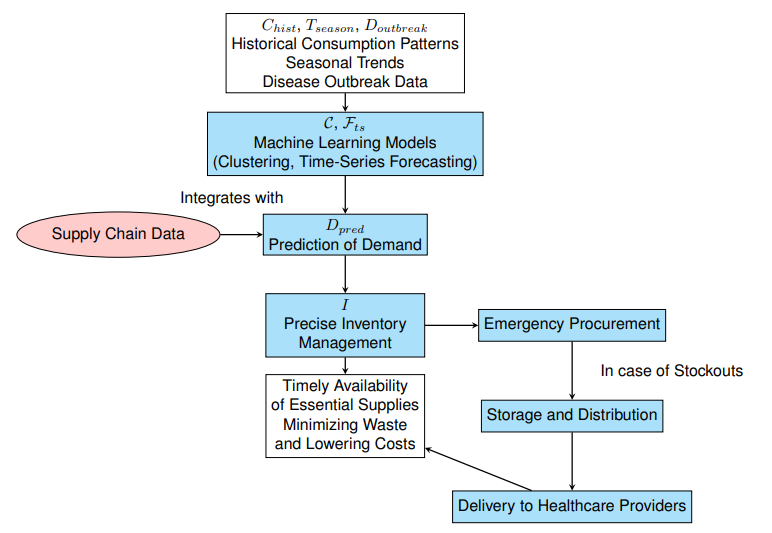The Role of Artificial Intelligence in Reducing Healthcare Costs and Improving Operational Efficiency
Kummaragunta Joel Prabhod
Keywords: Artificial intelligence, Administrative cost reduction, Predictive analytics, Precision medicine, Workflow automation
Abstract
The rising cost of healthcare has become a critical issue globally, prompting the need for innovative solutions to manage and reduce expenses while maintaining or improving the quality of care. Artificial Intelligence (AI) is transforming healthcare by significantly reducing costs and enhancing operational efficiency. This study explores various AI applications in healthcare, focusing on their roles to decrease expenses and improve patient outcomes. This research highlights that predictive analytics employs AI algorithms to analyze historical patient data, identifying patterns and forecasting health outcomes. This enables early interventions, which can reduce hospital admissions and associated costs. In precision medicine, AI processes vast datasets, including genomic data, to personalize treatments, reducing trial-and-error in medication and treatment plans for lowering costs related to ineffective treatments and adverse drug reactions. Administrative cost reductions are achieved through AI-driven robotic process automation (RPA), which automates tasks such as billing, coding, and claims processing. This reduces the need for manual labor and minimizes errors. Additionally, AI-based resource optimization tools improve the allocation of hospital resources, including staff, equipment, and facilities, reducing operational overheads. Workflow automation, powered by AI, streamlines clinical documentation, appointment scheduling, and patient follow-ups, allowing clinicians to devote more time to patient care. AI algorithms, such as convolutional and recurrent neural networks, enhance diagnostic accuracy and speed by analyzing medical images and diagnostic data. AI-powered remote patient monitoring systems use IoT devices to track patient health metrics in real-time, enabling proactive interventions and reducing the need for frequent in-person visits and hospitalizations. This study also shows that AI optimizes supply chain management by predicting the demand for medical supplies and pharmaceuticals, ensuring timely availability and minimizing costs associated with stockouts and overstock situations. AI also enhances patient engagement through chatbots and virtual health assistants that provide personalized communication and support, leading to better health outcomes and more efficient use of healthcare resources. This research makes a contribution to the understanding of AI's contemporary roles in healthcare, offering a recommendation for integrating AI technologies to achieve significant cost reductions and operational improvements.


